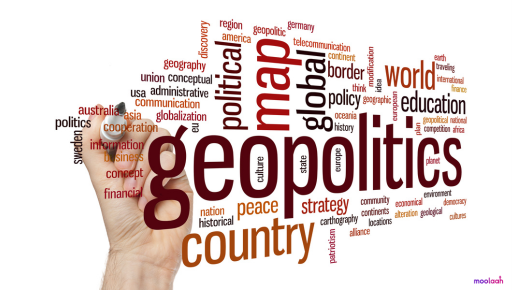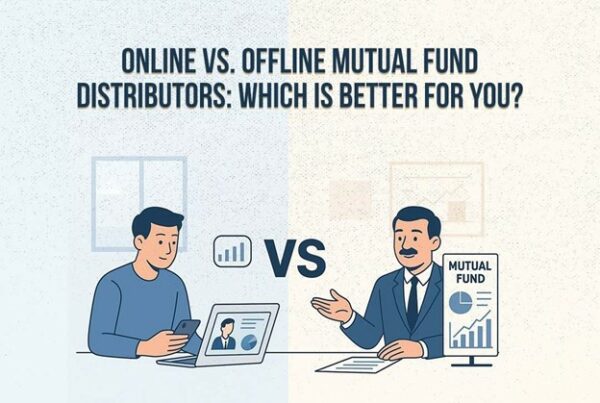Table of Contents
- Direct and Indirect Effects of Geopolitical Conditions (with examples)
- The Positive Effects of Geopolitical Conditions (with examples)
- How to Protect Your Money from Geopolitical Conditions?
- Conclusion
Have you ever been puzzled by sudden price hikes at the grocery store or unexpected drops in your investment portfolio during major events happening either in your own country or far across the globe?
These aren’t mere coincidences; they’re often the result of geopolitical conditions, both domestic and global, that influence financial markets.
Whether it’s an election in India, a trade dispute in Europe, or tensions in the Middle East, these events can create waves across continents, affecting everything from local economies to stock markets.
Let’s explore how geopolitical conditions impact both our local economy and the global financial landscape, and discover how you can protect your money during these turbulent times.
Direct and Indirect Effects of Geopolitical Conditions

In today’s global landscape, we find ourselves navigating through a multitude of geopolitical events. There is ongoing conflict between Russia and Ukraine, escalating tensions in the Middle East, and the multitude of recent elections in 64 countries throughout 2024 including in the USA and India.
Geopolitical events can impact the global economy, either directly or indirectly, through financial markets, trade, and commodity price channels.
- Financial Markets: Changes in stock prices, exchange rates, and investment flows.
- Trade: Disruptions or changes in trade policies, tariffs, and international trade relationships.
- Commodity Prices: Fluctuations in the prices of essential goods like oil, gas, and minerals, which can affect production costs and consumer prices.
Geopolitical events, such as sanctions stemming from political tensions between countries, have a direct impact on financial transactions and trade by restricting the flow of money.
For instance, if Country A imposes sanctions on Country B, banks in Country A are prohibited from conducting business with those in Country B. Consequently, businesses in Country A may lose the ability to invest in or trade with businesses in Country B, thereby affecting Country B’s economy.
A prominent example of this is the US imposing restrictions on Iran’s access to the global financial market, leading to limitations on US businesses’ interactions with Iran and affecting Iran’s oil exporting activities.
Geopolitical events often trigger rapid shifts in asset prices. For example, during conflicts between countries, investors may sell stocks and opt for safer assets like government bonds or gold, causing stock prices to plummet.
As a case in point, the Russia-Ukraine conflict and economic uncertainties in early 2022 significantly undermined global market sentiment and impacted stock prices during the first half of the year.
Tata Motors, one of India’s leading companies, was notably affected despite an increase in their sales. Their shares plummeted by over 20% in the initial months of 2022.
This decline was driven by negative cues from the Russia-Ukraine war, as well as other factors, including the global economic slowdown following COVID-19 lockdowns, a spike in commodity prices, and production setbacks due to shortage of semiconductors.
When geopolitical tensions rise, they can result in higher inflation, slower economic growth, and significant welfare losses. Increased uncertainty may cause businesses to raise prices to cover higher costs or safeguard their profits.
Reduced consumer and business confidence can lead to lower spending and investment, further dampening economic growth.
These combined effects can greatly impact the well-being of individuals and nations, underscoring the close relationship between geopolitics and the global economy.
The Positive Effects of GeoPolitical Conditions
Geopolitical events don’t just cause problems for the financial world; they can also boost national economies.
For instance, India recently secured a trade deal with the European Free Trade Association, which includes countries like Iceland, Liechtenstein, Norway, and Switzerland.
This agreement is expected to attract $100 billion in investments and create a million new jobs in India over the next fifteen years, while also allowing Indian companies access to European markets.
Similarly, times of geopolitical uncertainty can present opportunities for savvy investors. During tough periods like the Russia-Ukraine war and the Middle East conflict, while some economies and stock prices dropped, the price of gold surged.
Countries like China increased their gold purchases, viewing it as a valuable asset. Investors with significant gold holdings might profit from these price increases.
If an investor has a lot of gold in his investments, he might make some extra money when the gold price goes up.
However, is it wise to put most of your money into gold during these tense times?
The answer is neither yes nor no; it’s not that simple. Protecting your money and seizing opportunities requires careful planning and strategy.
How To Protect Your Money During Geopolitical Conditions?

When it comes to money, merely having a substantial amount does not guarantee the protection of your wealth. Why? Because inflation steadily erodes the value of your money year after year.
In India, the inflation rate typically hovers around 5-7% annually. This means that a product costing 100 rupees today will cost between 105-107 rupees next year.
During times of geopolitical risk, the inflation rate may increase even more, further diminishing your money’s value.
Therefore, the first step in protecting and growing your money is through investing in assets that yield good returns. Once you begin investing, certain measures should be taken to withstand the risks posed by geopolitical events and to capitalize on opportunities for better returns. These measures include:
1. Choose Diversified Investments
The best way to protect your investments from geopolitical risk is to diversify your investments across different asset classes and further diversify within each asset class.
Through diversification, you distribute your risk across multiple markets. This means that potential losses in one investment can be mitigated by positive returns from others.
For example, in January 2024, during the Russia-Ukraine war, international travel and leisure stocks performed poorly, but gold prices remained stable or even increased. An investment portfolio with a diversified mix of assets could have mitigated the losses from travel and leisure stocks with the gains from gold.
2. Stay Up To Date
To protect your investments from market volatility or uncertainty, it’s crucial to stay informed about geopolitical events happening around the world and within your nation.
Understanding the current conditions and how specific events might impact the financial markets and your assets can help you make a timely and informed decision
Follow major world and national events, as well as money and investment-related news. Websites like Bloomberg and Reuters provide up-to-date information on global events.
For insights into the financial market and updates, platforms like Mint and Moneycontrol are excellent resources.
3. Monitor Your Investments Frequently
In addition to staying informed about the news and its effects on the financial market, you should regularly monitor your investments.
Evaluate whether any of your holdings will be impacted by current events and seek opportunities to add promising investment products to your portfolio.
When high-impact geopolitical risks arise, it’s crucial to assess the situation and anticipate how it might affect your investments. This may involve diversifying your existing investments, moving assets to different markets, or liquidating assets if necessary.
Quick monitoring and decision-making are essential to minimize potential losses in such scenarios.
4. Don’t Let Your Emotions Take the Decision
One of the major mistakes investors make during geopolitical events is acting on their emotions. Panic-selling or buying assets out of excitement can lead to poor investment decisions.
Just because a company’s stock price drops due to geopolitical tensions doesn’t mean it won’t recover. Conversely, a company’s stock price rising because of new economic policies doesn’t guarantee it will continue to increase.
It’s essential to recognize that companies may eventually rebound or face ongoing challenges.
So, it’s crucial to base investment decisions on research about specific investments, the situation, and potential future impacts, rather than panicking or getting excited about geopolitical conditions.
Think rationally in these situations, ensuring emotions do not solely drive your decisions.
5. Seek a Professional Help
One effective way to safeguard your investments from these risks is by consulting a financial expert. A professional can help you understand the potential threats from geopolitical events and offer insights into investment strategies and protective measures.
They can also assist in implementing a customized financial plan that accounts for the current geopolitical environment.
When working with a financial expert, make sure to ask questions and thoroughly understand the strategies you intend to use. It’s also important to feel comfortable with the level of risk involved in your investment decisions.
You can seek the help of Moolaah for professional assistance in executing a personalized investment strategy. Moolaah is a wealth-tech platform that connects individuals and families with seasoned experts to help secure their financial future.
By connecting with a financial expert on Moolaah, you can gain insights into various investment options available, for your financial goals and risk profile. They will also keep you informed about geopolitical tensions to help mitigate risks in your investment portfolio.
With Moolaah, you gain access to collaborate with seasoned financial experts to execute personalized investment strategies, benefit from ongoing portfolio monitoring, and utilize a user-friendly investment platform for easy execution of your investment plans.
Conclusion
Geopolitical events have a huge impact on our economy and financial world. Navigating these challenges, protecting your wealth, and seizing opportunities require a strategic approach.
By understanding how geopolitical events affect the broader economy, diversifying investments, staying informed, and managing emotions, individuals can safeguard their finances.
Additionally, consulting with financial experts can significantly enhance your decision-making process, ensuring you stay on track and secure your financial future.


